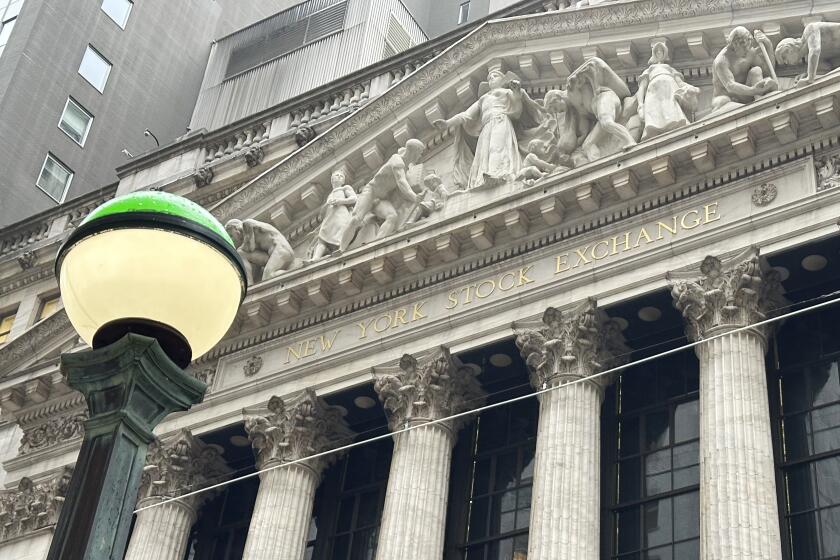Death Fortifies Park Critics
Four days before a preschooler died after passing out on a popular space ride last Monday at Walt Disney Co.’s Florida park, the company’s top theme park executive and two lobbyists had visited the Capitol Hill offices of Rep. Edward J. Markey (D-Mass.).
The three wanted to make the case that the kind of federal safety oversight the congressman was proposing for the industry was unnecessary because theme parks are safe and already regulated by most states.
Now, 4-year-old Daudi Bamuwamye’s death has abruptly put Disney and other theme park companies firmly on the defensive. The cause of the Pennsylvania boy’s death, and whether the Walt Disney World ride had anything to do with it, may not be known for weeks. But the death is galvanizing consumer advocates and safety consultants, who view it as example of why the kind of federal regulation Markey proposes is needed.
“There may be something we can learn from this incident,” said Ken Martin, an independent ride inspector and consultant based in Virginia. “But we can’t because there’s no federal investigation.”
Federal officials lack authority to investigate incidents such as the one last week because of an exemption Congress passed in 1981. It allows the Consumer Product Safety Commission to regulate carnival rides because, moving from state to state, they otherwise could escape oversight. Fixed rides at theme parks, however, are exempt.
Disney parks spokeswoman Leslie Goodman said the Burbank company’s appointment with Markey was not to specifically lobby against his bill. She described the session as an informal “meet and greet” between Markey and Jay Rasulo, head of Disney parks and resorts.
But, she said, Disney has joined the International Assn. of Amusement Parks and Attractions trade group in opposing Markey’s legislation.
Goodman said Disney has always complied with existing inspection and accident reporting rules while actively working with regulators and with other theme park operators to make them better. Markey’s bill, she said, is excessive regulation.
“We are always open to a discussion of ways we might improve reporting but are not convinced that another layer of regulation from Washington is the best answer,” Goodman said.
Markey, a senior member of the House Energy and Commerce Committee, has been pushing theme park safety legislation since four people died on roller coasters during just one week in 1999. He contended that state regulations were inadequate and inconsistent.
“We don’t see eye to eye on this question,” said David Moulton, Markey’s chief of staff.
The congressman renewed his push last month, announcing legislation that would allow federal officials to investigate accidents, enforce action plans to correct defects and act as a national clearinghouse for accident information.
“As long as the law specifically exempts amusement park rides from the oversight of our nation’s consumer safety agency, there will be significant likelihood of other families on other rides becoming future victims,” Markey said. “That is wrong.”
Markey’s past efforts have languished without even reaching the House floor for a vote.
But Daudi Bamuwamye’s death has given fuel to industry critics. Among them is consumer advocate Kathy Fackler, whose son’s foot was crushed on the Big Thunder Mountain Railroad ride at Disneyland in 1998. Fackler pushed for the passage of the 1999 laws that gave California oversight of parks in the state.
“What’s needed is a serious conversation about a national solution that effectively covers safety issues on all amusement rides in the United States,” Fackler said.
Fackler and other industry critics say federal oversight is necessary because there is no uniform standard when it comes to safety regulation.
For example, Florida’s largest amusement parks, including Walt Disney World, are exempt from state regulations that require reporting of injuries and give the state authority to shut down and inspect rides.
Although Disney voluntarily reports some accidents, what it has agreed to tell the state is less than what the law requires of carnivals and smaller parks, according to a memorandum of understanding signed by the state’s largest theme park firms.
Disney has a tougher regulatory environment in California. Just last week, the state Supreme Court ruled against Disney in a case that increases safety standards on thrill rides from “reasonable care” to “utmost care and diligence.”
Had last week’s incident occurred in California, Disney would have had to shut down the ride and summon state officials, who would decide about reopening the ride.
In Florida, Disney World’s own ride inspectors -- in consultation with local authorities -- cleared “Mission: Space” to reopen the morning after the incident. They noted that the simulated space ride, which spins riders in a giant centrifuge, was functioning normally.
Although Disney boasts one of the highest safety standards in the business, it has often resisted regulation efforts.
In California, for example, Disney attorneys fought state regulators in 2001 on guidelines that determine which accidents and injuries must be reported to the state. Disney objected to reporting serious injuries that require medical service other than ordinary first aid.
“They’re trapped in this dilemma of wanting to support safety but not wanting [excessive] regulation of their business,” said Janet Wasko, a professor at the University of Oregon who studies Disney.








